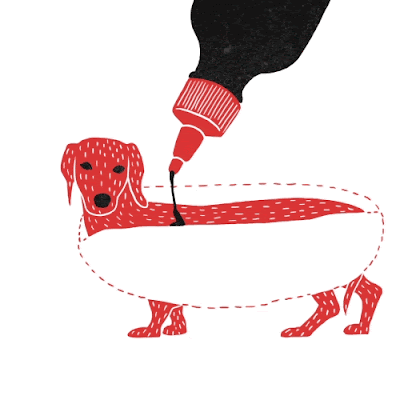NPR來囉!海洋變酸,牡蠣難產。不如吃素吧!
下載聲音檔請點我
海洋酸化,罪魁禍首是氣候的異常。造成氣候異常的當然是溫室效應。空氣中二氧化碳的濃度過高,影響層面非常廣泛與深遠。
之前我在部落格上大力提倡素食救地球,現在又不厭其煩的再度勸說,請大家多幫幫地球的忙。大地滋養我們,千萬不能將此視為理所當然。我們能回饋地球最好的方式,就是善待她。吃素可以減碳,也可以減嘆(心情會變好)。
我吃全素一年多了,身心舒暢還有回春之感(呵呵),現在我身邊的朋友,有些人也發心跟我一起吃素,大家都覺得吃素好處多多,除了環保之外,還減少了殺生的罪惡感。其實每天都有成千上萬的動物因為人類的口腹之慾而死亡,我的宗教信仰告訴我,眾生是平等的,一隻豬跟一隻蚊子一樣都有活著的權利,所以我不讓身體成為動物的停屍場。
大家不要去罵吃海豚肉的人,而要去想,為何保育類動物不能吃,那我們天天吃排骨飯呢?莫非豬跟牛比較倒楣低等,要接受殘酷的殺害?
有興趣吃素的同學,不妨以循序漸進的方式。先從一天一餐素食開始,如果覺得很OK就進一步開始每周一天,慢慢調整,最後就能進入完全蔬食的生活了。我的朋友吃素後心情變好,充滿正向能量,我也替他們高興。其實我當初寫部落格是希望傳播吃素的善念,只是不敢天天寫,怕有人覺得討厭,這樣會有反效果,說多了大家反而麻木...今天這篇文章,恰好跟環境生物有點關連,我就冒著被討厭的風險,再次提醒一次。
感謝你吃素,感謝你對地球好。善待土地,人類也會有好日子過。
這就是the virtuous cycle良性循環。
我的好友罹患腎臟癌第三期,他說,很多癌友罹病後聞肉色變,因為肉類裡面有太多不OK的東西。瘦肉精、荷爾蒙與抗生素,這些東西吃越多,癌細胞越強壯,可是很多癌病患者不吃又擔心沒體力。我跟他說,吃素哪會沒體力。多吃五穀飯,黃豆就很好。之前我有點更年期症狀,後來天天喝豆漿,補充大豆異黃酮,症狀緩減很多。
總之,過年期間難免大魚大肉,大家儘量多吃蔬食,多勸身邊的人吃素。健康是人生最大的財富,大家要好好照顧身體。
Can Shellfish Adapt to More
Acidic Water?
acidic 酸性的 alkaline 鹼性的
LINDA
WERTHEIMER, HOST:
The shellfish industry貝類/甲殼業者 on the West Coast美國西岸 has had a bumpy few years過去幾年不太順遂/慘澹經營 and
increasingly, it is pointing to climate change as the cause. Scientists believe
the oceans are becoming more acidic as they absorb the increasing amounts of carbon dioxide二氧化碳 in the air, and they are not sure
if oysters牡蠣 and other shellfish will be able to
adapt適應to this change. Lauren Sommer, from
member station KQED, has this report.
LAUREN
SOMMER, BYLINE: Terry Sawyer does a brisk興旺的 business
in
oysters.
TERRY
SAWYER: I take the shucking knife剝殼刀 and I'll
go into the hinge鉸鏈(這裡指的是連接牡蠣兩片殼的中心點). You see there's no meat on the top
shell?
SOMMER:
His farm, Hog Island Oyster Company, is about an hour north of San Francisco
SAWYER:
Nutty, creamy flavor...
SOMMER:
And Sweetwaters.
SAWYER:
Some people do describe it as sweeter.
SOMMER:
The oysters grow up in big mesh bags網袋 that sit
in the cold waters of the Pacific. Sawyer gets the oysters from hatcheries孵卵所 in Oregon and Washington, but a few
years ago, he started getting calls from his suppliers供應商. They
couldn't fill
the orders供不應求.
SAWYER:
They would have tens of thousands of gallons of tanks that were absolutely full
of larvae幼蟲(此字為複數,單數為larva)and they'd had the entire system
die.
SOMMER:
Their intake
pipes吸入管 were
pulling in the same sea water, but now it was more acidic, which makes
it harder for
oysters to build their shells牡蠣很難繁殖. The ocean is basically a giant sponge海綿 for
carbon dioxide and scientists say sea water has become 30 percent more
acidic since the start of the Industrial Revolution工業革命(第一次工業革命的時間點約為西元1760至1830年間,距今約250年). Sawyer's growing his own oyster
larvae now so he'll have a more predictable supply可預期的/穩定的供貨, but he says there's no question
that climate
change is affecting his bottom line基本維生的出貨量.
SAWYER:
We don't know if we're going to be able to survive the very real trending that
is going on out there.
SOMMER:
It's a trend趨勢/潮流 that
doesn't just affect oysters. On a rocky point farther point, about two hours
from San Francisco, oceanographer海洋學家 Tessa Hill of the University of California, Davis shows
me tide pools潮水過後留下的水漥 packed
with California mussels貽貝/淡菜. These
mussels and other shelled animals like sea urchins海膽 and tiny
marine snails are crucial重要的 to the marine food web海洋食物網, she says.
TESSA
HILL: Probably most people like the fact that we have things like whales鯨魚 and salmon鮭魚 along
our coast and those organisms生物/有機體 are likely to be impacted 受到影響because their food source食物來源 will be impacted.
SOMMER:
In 100
years, oceans could be more than twice as acidic. So, Hill says, they're trying
to find out if marine life can adapt. The mussels and sea urchins here
could help answer that, since they're already part of a naturally occurring experiment.
HILL:
They're facing the most acidic water that you'd see in the ocean today.
SOMMER:
Marine life on the West Coast is blasted with充滿了 acidic
water from the deep ocean during seasonal upwelling季節性的涌升流 in the spring and summer. So maybe they've developed
ways to handle it.
HILL: SB
would be Santa Barbara ; MB is Monterey Bay
SOMMER:
Inside their lab, Hill shows me jars full of young mussels almost too small to
see. Each jar is from a different part of the West Coast, from central Oregon to southern California
STEVE
PALUMBI: We found they have lucky genes.
SOMMER:
Steve Palumbi is a biology professor at Stanford University
PALUMBI:
This is good news because these organisms have the capacity能力 to deal
with more acidification酸化. But it's not good news forever,
because all it does is give us a little breathing room給一點點喘息的空間.
SOMMER:
And not much breathing at that, says Palumbi. The ocean is acidifying faster
than it ever has before. Organisms will evolve進化, he
says, but
probably not fast enough to keep up進化的速度可能趕不上環境的變化. That means the shellfish industry
could face even bigger challenges down the road未來. For NPR
News, I'm Lauren Sommer in San
Francisco











Chloe老師:
回覆刪除老師你好啊~
我是之前暑假有在哈佛補習的Penny :)
我現在正在申請要到荷蘭Leiden University交換
想請問你能不能幫我看看我的SOP是否通順和有沒有文法錯誤> <
如果可以的話
可以給我你的email我寄檔案過去嗎
謝謝老師!!!
Dear Penny,
回覆刪除我即將發布一個消息
你要先去看看嗎?
等你看了這個布告
我們再連繫也可以喔
美麗的老師您好:
回覆刪除打擾了,我是大愛電視台"蔬果生活誌"節目的企畫,想跟您請教關於吃素這件事情,不知道能不能跟您用e-mail聯絡呢??我的email是 ritachuan@hotmail.com . Rita